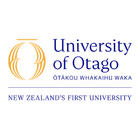- News and articles
- Find usIDP AustraliaIDP BahrainIDP BangladeshIDP CambodiaIDP CanadaIDP ChinaIDP EgyptIDP GhanaIDP Hong KongIDP IndiaIDP IndonesiaIDP IranIDP JordanIDP KenyaIDP KoreaIDP KuwaitIDP LebanonIDP MalaysiaIDP MauritiusIDP Middle EastIDP NepalIDP New ZealandIDP NigeriaIDP OmanIDP PakistanIDP PhilippinesIDP Saudi ArabiaIDP SingaporeIDP Sri LankaIDP Taiwan, ChinaIDP ThailandIDP TurkeyIDP UAEIDP VietnamIDP Corporate
- Social
- English
- Where we operate
- Courses
- Scholarships
- IELTS
- About IDP
- Student Essentials
- News and articles
- Find us
- Find us
- Find nearest IDP offices
- IDP Australia
- IDP Bahrain
- IDP Bangladesh
- IDP Cambodia
- IDP Canada
- IDP China
- IDP Egypt
- IDP Ghana
- IDP Hong Kong
- IDP India
- IDP Indonesia
- IDP Iran
- IDP Jordan
- IDP Kenya
- IDP Korea
- IDP Kuwait
- IDP Lebanon
- IDP Malaysia
- IDP Mauritius
- IDP Middle East
- IDP Nepal
- IDP New Zealand
- IDP Nigeria
- IDP Oman
- IDP Pakistan
- IDP Philippines
- IDP Saudi Arabia
- IDP Singapore
- IDP Sri Lanka
- IDP Taiwan, China
- IDP Thailand
- IDP Turkey
- IDP UAE
- IDP Vietnam
- IDP Corporate
- Social
- Language Switcher
- IDP Education /
- Colleges and Universities /
- New Zealand /
- The University of Otago /
- Bachelor of Dental Technolo...


Location
New Zealand
Qualification
Bachelor Degree with Honours
Fees
NZD45906
(2025)
Duration
3 Year(s)
Next intake
26 February 2026
Entry Score
6.0
IELTSCourse info
Dentistry is a challenging profession that combines a high degree of manual dexterity and precision with a thorough understanding of craniofacial biology, anatomy, pathology, biomaterials, and excellent communication skills. As a dentist, you are the leader of the oral health team and can diagnose and carry out treatment planned for each patient's oral needs.
If you are considering a career as a dentist, you can look forward to a health profession that provides considerable variety and lifelong learning as you work to maintain your practising standards.
Dentistry teaches you:
The scientific foundations in anatomy, physiology, oral biology, and biomaterials.
About public health dentistry and how to develop your communication skills.
Clinical skills, first in simulation classes and laboratories, and then in patient sessions.
About a wide range of clinical dental disciplines including prosthodontics and clinical cariology, endodontics, periodontics, paediatric dentistry, orthodontics, oral medicine, oral surgery, oral pathology, and special needs dentistry.
Otago has one of the most up-to-date dental facilities in the world.
Most graduates in Dentistry enter general practice on their own or in association with others. Some undertake postgraduate study and research training in preparation for an academic career. Others obtain further experience and complete postgraduate clinical qualifications before entering specialist practice.
- Scholarships View all scholarships
- Internships
Entry requirements for The University of Otago
A detailed research proposal that shows you are familiar with current literature surrounding your topic.
International Baccalaureate: IB Diploma with a minimum of 24 points.
GCE Advanced Levels: minimum grade of 8.
Satisfactory completion of one year's study at an approved tertiary institution.
You must provide scanned copies of your previous official academic transcripts (awards gained, marks, grades) with your application.
IELTS - Overall score of 6.0, no individual band below 5.5.
TOEFL iBT - Overall score of 80 and a writing score of 20.
Application Deadline
The application deadline isn't available Speak to an IDP counsellor for more detailed information
Further information
If you aren't eligible for the above entry requirements, you might ant to explore pathway options at The University of Otago. If you want to find out more, speak to our counsellors.
THE World Ranking
351st / 1250
THE World RankingWhat our students think
We’ve haven’t received any reviews for this institution yet.
Recommended for you
- Bachelor Degree
- Hamilton , New Zealand
- Next intake:07/2025
- Entry Score: IELTS 6.0
- NZD25377 (2025)
- Bachelor Degree
- PORIRUA , New Zealand
- Next intake:02/2026
- Entry Score: IELTS 6.5
- NZD28000 (2025)
- Bachelor Degree
- Hamilton , New Zealand
- Next intake:07/2025
- Entry Score: IELTS 6.0
- NZD26000 (2025)
- Bachelor Degree
- Auckland , New Zealand
- Next intake:07/2025
- Entry Score: IELTS 6.5
- NZD29120 (2025)
- Bachelor Degree
- Christchurch , New Zealand
- Next intake:02/2026
- Entry Score: IELTS 6.0
- NZD25000 (2025)
- Bachelor Degree with Honours
- Hamilton , New Zealand
- Next intake:07/2025
- Entry Score: IELTS 6.5
- NZD25000 (2025)
- Bachelor Degree
- Hamilton , New Zealand
- Next intake:07/2025
- Entry Score: IELTS 6.5
- NZD29120 (2025)
- Bachelor Degree
- Hamilton , New Zealand
- Next intake:07/2025
- Entry Score: IELTS 6.5
- NZD29511 (2025)
Your action plan
Step 1
Shortlist your courses
Choose the best three courses you’re most likely to pursue.
Step 2
Check your eligibility
Get an instant in-principle offer for courses with the IDP FastLane tag.
Step 3
Apply through IDP Live
Fill out the form once and use it to apply to multiple courses.
How does IDP FastLane work?
With the FastLane 'Offer in Principle', you'll know in minutes if you'll be accepted!
Select an institution and course
Create your academic profile
Submit your application for an 'Offer in Principle'
Your chosen institution(s) will send you a decision in minutes!
Get ready to apply with an expert counsellor




